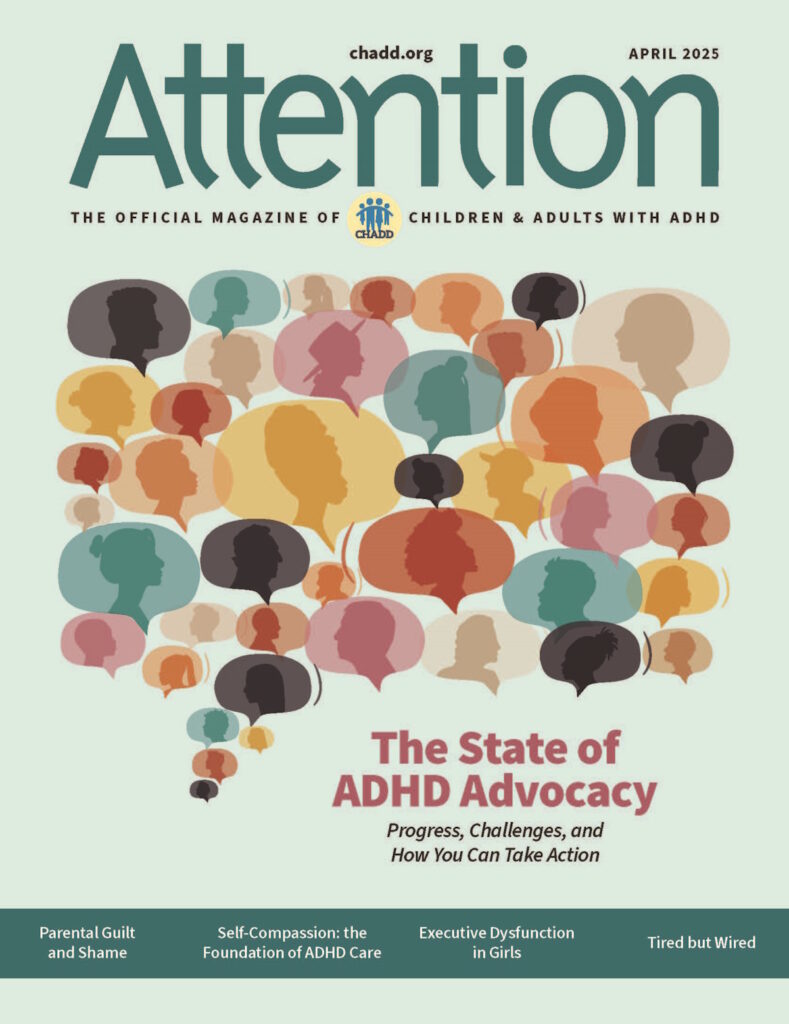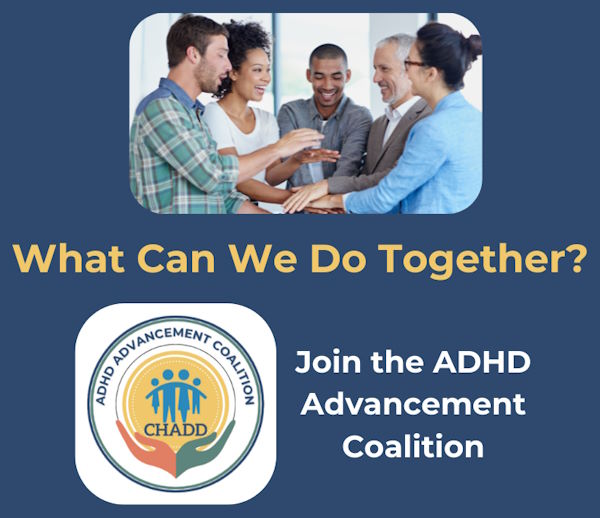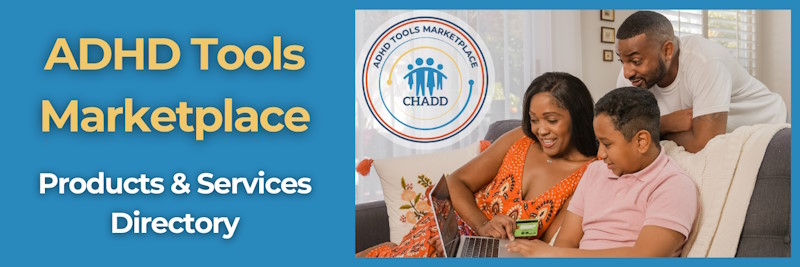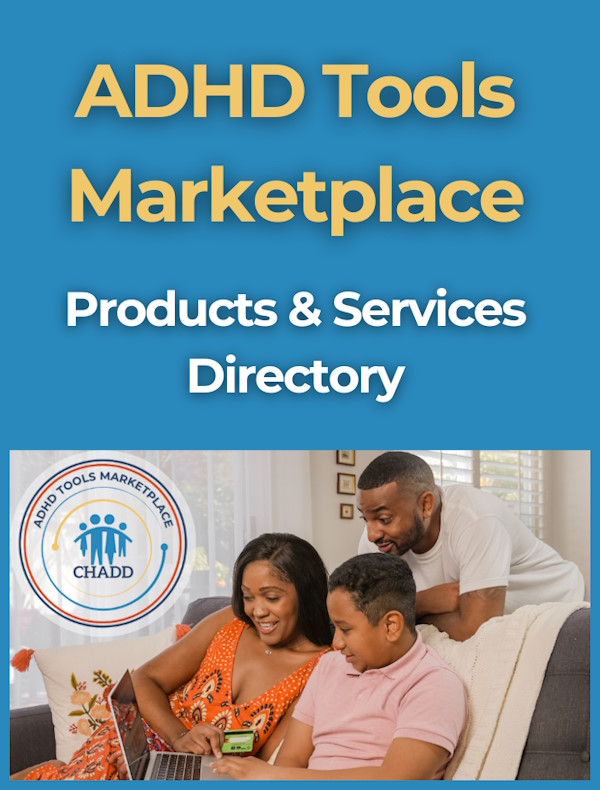ADHD in the News 2025-04-10
April 10, 2025New Study Links Diabetes in Pregnancy to Developmental Risks in Children
All ADHD Meds Tied to Small Blips in Blood Pressure and Pulse
Children with neurodevelopmental disorders found to be negatively impacted if their mothers had difficult childhoods
ViewADHD Weekly, April 17, 2025
April 16, 2025Could a Body Double Help You Increase Your Productivity?
When Balancing Social Media Use Becomes a Challenge
View
Attention Magazine
Recognized for its excellence, CHADD’s bimonthly magazine is rich in practical information, clinical insights, and evidence-based strategies for managing ADHD.
LEARN MOREJoin the online community for parents of children with ADHD

Political Posts
Hello, We've received reports for political posts. Here are some rules when it comes to posting. No pictures from any event. All pictures will be deleted by the admin. Discussion on advocating for ADHD care, educational rights, and disabilities rights is welcome. Attacks on people, including politicians, will not be tolerated and will be remov

My 10 year old little boy has ADHD and I am looking for ways to help him adjust and hopefully thrive, I look forward to hearing your thought

Adhd Meds
We recently went to see an ADHD Dr for our recently diagnosed 9 yr old. I went in with a ton of questions, and received a lot of answers, but when we left the office I still feel unsure of the unknown. She provided us a list of medications (which is scary) but also know it's needed. Would anyone be willing to provide any real life experiences w

Suggestions on helping my 9 year old with ASD, ADHD, and ODD manage his anger and frustration.
Hi, I am new to this sight and would love some advice on how to help my child with his frustration and anger issues. He is 9 years old and has been dealing with this for a long time. He is currently on Abilify 10mg, Azstarys 52.3-10.4mg, and Lexepro 5mg. He has a lot of sensory issues as well. Auditory is a big one. When he was in kindergart

New ADHD Women Support Group
CHADD is pleased to announce our new support community, "ADHD Women Support" which can be found here on HealthUnlocked. CHADD's ADHD Women Support community is a space for women with ADHD to connect and support each other. Talking about the challenges you face as a woman with ADHD can be hard, but sometimes, there's nothing more helpful than talkin

Help with discipline
My daughter was diagnosed with ADHD at 6. She's now 8. I'm wondering what other parents have done as far as discipline and accountability. Note* she is medicated in the mornings 10mg which usually wears off when she gets home from school. I've tried natural consequence, a rewards system, educating, taking away privileges but they haven't been very

Kids Shouldn't Have Phones
My opinion and I love my children. I do have 1 problem children/kids should not have phones. We act like we all grow up this way. How many kids respect you. How many parents fear their kids. I know meds didn't help I feel like we need to look farther into the brain and how it fires! Just my opinion. Children need structure, rules, taught respect an

Why Small Habits Make a Big Difference to Your Health
When it comes to staying healthy, many of us think we need to make big changes. Quit sugar. Start running marathons. Go vegan overnight. But here’s the truth, lasting health starts with small, simple habits. And often, those small steps are the ones that stick. Let’s break down why. [b]1. Small changes are easier to maintain[/b] It’s much easier

Meds and texture issues

School blocking ADHD student advanced level courses
Join the online community for adults with ADHD

Political Posts
Hello, We've received reports for political posts. Here are some rules when it comes to posting. No pictures from any event. All pictures will be deleted by the admin. Discussion on advocating for ADHD care, educational rights, and disabilities rights is welcome. Attacks on people, including politicians, will not be tolerated and will be remov

is it my combined adhd/add
soooo... I have a bit of an issue occurring at the moment...I have always sat there moving some part of my body...normally my feet...my wife always pulls me up on it...recently (last month or so)...since she has made it apparenta to me...I have started playplayin with my teeth to point of making my tongue super sore and bleeds from time to time..

Having clean and organized apt is vital to my mood and confidence.
75 yr old woman, been living alone with my cat in Dana Point with so far undiagnosed abdominal deep pain for 2 yrs. Just lost house cleaner and looking at possibility of keeping my apartment clean and organized by myself. But I fear that this is something that will only cause stress as I will not keep it up. I started having a cleaning lady about

Adult add
I can't be prescribed amphetamines because those are only for childre6

New ADHD Women Support Group
CHADD is pleased to announce our new support community, "ADHD Women Support" which can be found here on HealthUnlocked. CHADD's ADHD Women Support community is a space for women with ADHD to connect and support each other. Talking about the challenges you face as a woman with ADHD can be hard, but sometimes, there's nothing more helpful than talkin

Free parenting conference beginning 4/10
Free online conference beginning tomorrow for parents and there are specific chats on adhd…just wanted to share, as I’ve attended previously and they have been super helpful! conference.HappilyFamily.com

Inappropriate
Why are you posting your political beliefs here?

Hands Off Proud
I'm proud to have joined the protestors at the Fayetteville Ar Hands Off march! I personally marched for justice reform, and the acknowledgement of ADA Rights that are being ignored in Arkansas.

High stress situation help
Hi, does anyone have tips on how to handle anxiety and anger/ other overwhelming emotions during a high stress situation? It's a situation that would be high stress for neurotypical people as well. I'll be put on the spot with questions during this time and am fearful of my emotions taking over and not being able to respond in a logical, calm, inte

Startled
diagnosed as an adult. On medication- working fairly well. Question- when I get startled I usually jump a mile or yell. It makes my husband of over 20 eyars crazy. if the dog is next to me and he suddenly barks- I scream and its downhill form there. It occurred to me last week that maybe this was related to my ADHD.. when I am focussed- I am foc













